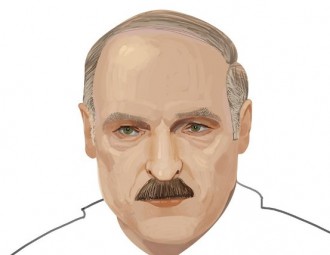Elections 2015: The “regular” winner Lukashenka doesn’t intend to review his policies
 Illustration by RBK
Illustration by RBK
Meanwhile Lukashenka’s voting machine continues to improve. In the current elections, it has managed to ensure unprecedented high turnout during the early voting.
Belarusian electoral machine has ‘improved’ and now ensures Lukashenka’s re-election through a combination of administrative pressure and falsifications with minimal violence. The policy of the authorities as a result of the election will remain unchanged, the opposition is likely to be reformatted and leaders may change.
The Central Electoral Commission has announced the preliminary results of the elections: Lukashenka – 83,4%, followed by "against all" – 6,4%, Karatkevich – 4,42%, Haidukevich – 3,32%, and Ulahovich – 1,67%.
It should be noted that during this elections there were no independent opinion polls. As a rule, candidates’ headquarters requested polls from foreign sociological laboratories from Ukraine and Russia and Vardomatsky’s Novak laboratory. In the 2015 elections, candidates did not have funds to organise independent polls and the only source of alternative information would be IISEPS polls, which were scheduled for December this year. However, the IISEPS data would only report about respondents’ moods in December.
Lukashenka’s voting machine continues to improve. In the current elections, it has managed to ensure unprecedented high turnout during the early voting. Moreover, observers said that the official early turnout figures had been inflated relative to the real by maximum 10%. In addition, the authorities’ attitudes and treatment of observers, candidates and elections coverage by the official media was less harsh than in previous elections.
After 8 pm on October 11th, several protesters gathered on the October Square in Minsk and about 200 people marched to the Independence Square, taking the same route as protesters in 2010. The action lasted about an hour and ended with no arrests. It should be noted that there were no detentions regardless of Lukashenka warning at a polling station No1 regarding unacceptability of street protests after 8 pm.
Ulahovich and Haidukevich have congratulated Lukashenka on his election victory - despite the disappointing number of votes they have collected. Karatkevich intends to challenge the election results. The split in the opposition will deteriorate after the elections despite the fact that neither supporters of Karatkevich, nor supporters of Statkevich have agreed with the election results and neither of them showed up at the protest action after the elections. In the coming months supporters of Karatkevich will attempt to build the potential of the candidate and supporters of Statkevich will seek opportunities to organise street protests. Meanwhile, further findings and impact of the elections on the opposition will be analysed in the coming weeks.
As for the ‘regular’ winner Lukashenka, he does not intend to review his policies. To be fair, he probably could not, even if he had such intention.
-
03.01
-
07.10
-
22.09
-
17.08
-
12.08
-
30.09








































